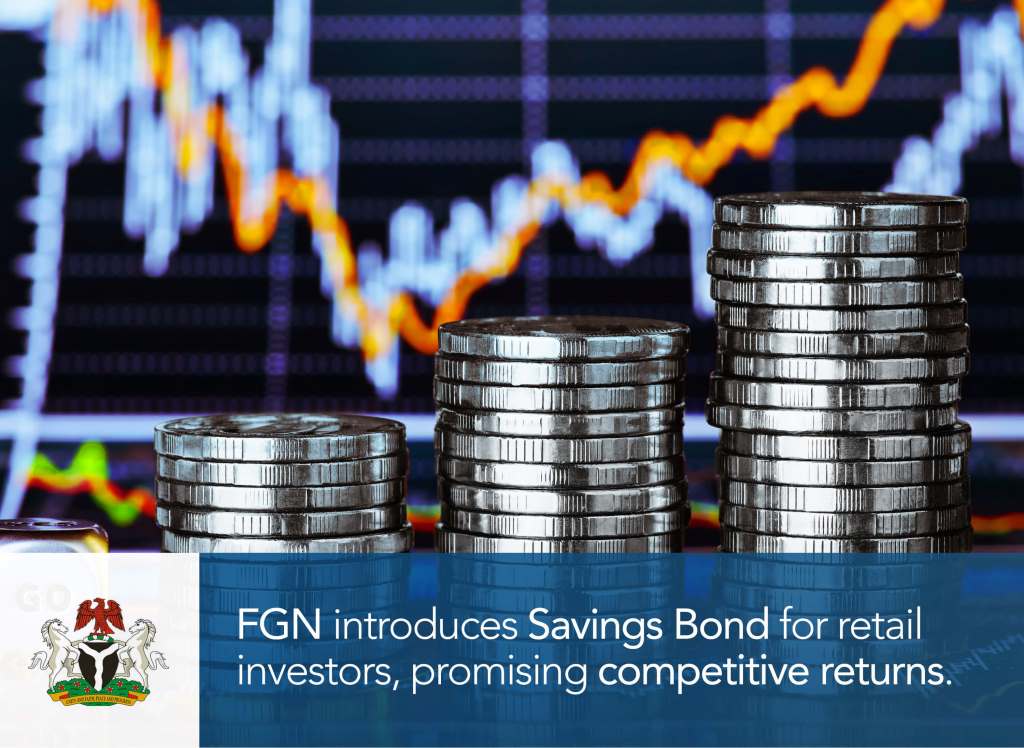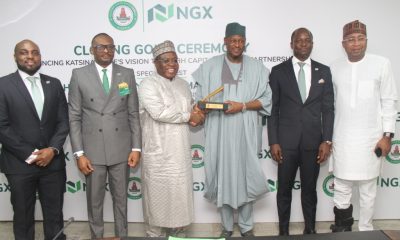Economy
SEC Backs N100b FGN Sukuk Debt Issuance
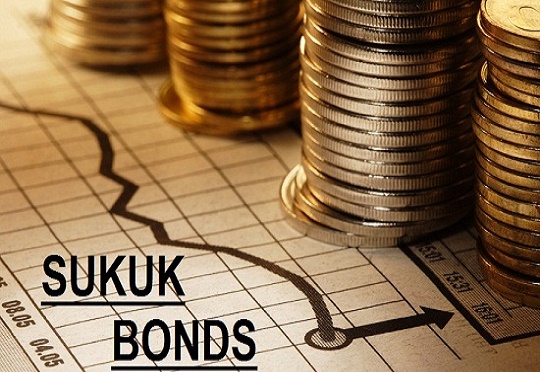
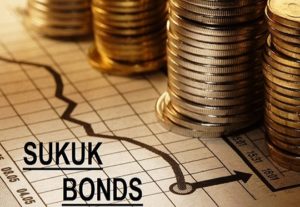
By Modupe Gbadeyanka
The issuance of the maiden N100 billion Sukuk in the Nigerian capital market by the Debt Management Office (DMO) has received the backing of the market regulator, the Securities and Exchange Commission (SEC).
In a statement issued yesterday by its management, SEC described this as a “major milestone for Nigeria,” noting that it would “catalyse the development of non-interest capital market products.”
SEC said the issuance of the Sukuk followed its diligent advocacy efforts on the need to issue the instrument in order to serve as an alternative product for investors.
It further described Sukuk as a viable option as both the federal and state governments seek alternative funding sources for infrastructure.
The agency said in the statement that, “We wish to commend the DMO for this laudable step while appreciating the Central Bank of Nigeria (CBN) for releasing guidelines on granting liquid asset status to Sukuk.
“The guidelines allow Sukuk instruments issued by State governments to be discounted at CBN discount windows and to be applied by banks in their liquidity ratio computation, similar to conventional state bonds.
“This will facilitate the emergence of a vibrant secondary market that will encourage more issuances from State governments.”
“Also, we commend the National Pension Commission (PENCOM) for approving the new pension regulation which has Sukuk as part of allowable instruments of investment.
“Thus, Sukuk Instruments issued by eligible state and local governments as an asset class, have now been included in the list of allowable instruments in which PFAs may invest pension Fund Assets under management. This was not mentioned in the 2012 Regulations,” SEC added.
Sukuk, the non-interest equivalent of bonds, is becoming increasingly attractive as a preferred option for funding infrastructure development and indeed economic growth across the globe.
Several countries across diverse continents have increasingly issued non-interest financial instruments to fund their infrastructure deficit.
The trend is also fast gaining pace in Africa, with notable Sukuk issuances by South Africa, Senegal, and the Government of Cote d’Ivoire.
In 2013, SEC issued rules on Sukuk issuance in Nigeria following which Osun State government raised N11 billion in the country’s first Sukuk issuance which was oversubscribed.
In ensuring that the Nigerian capital market plays a significant role in the success of Nigeria’s maiden sovereign Sukuk issuance, SEC supported the DMO specifically in the area of capacity building and participation at the Capital Market Committee’s sub-committee on non-interest products.
This journey has led to this historic proposed issuance of Nigeria’s N100 billion, 7-year Sukuk, which would not only facilitate the mobilization and allocation of funds within the economy but would serve to position the country as a gateway for foreign and domestic investors.
The issuance would also further deepen the Nigerian capital market by promoting financial inclusiveness while providing an additional asset class of tradable liquid instruments for investors.
Economy
Naira Extends Losing Streak, Falls to N1,356/$1 at NAFEX
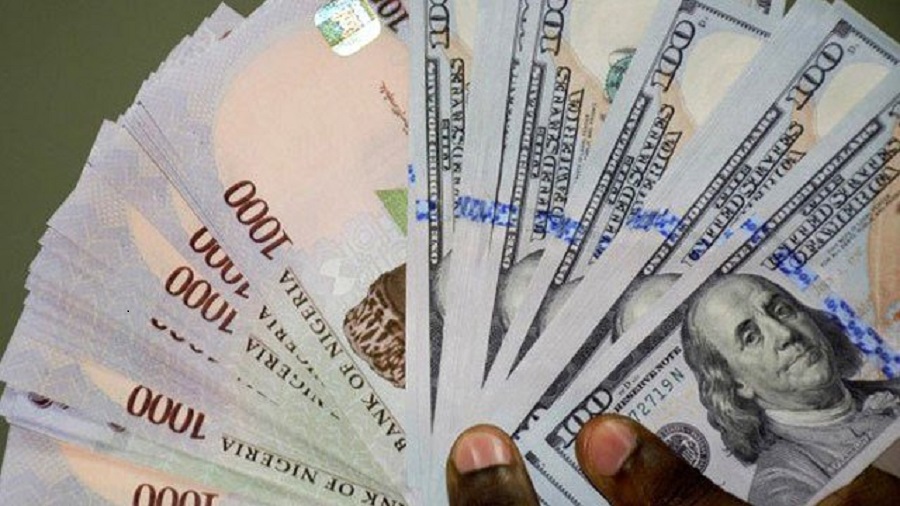
By Adedapo Adesanya
A 74 Kobo or 0.05 per cent decline was recorded by the Naira against the United States Dollar in the Nigerian Autonomous Foreign Exchange Market (NAFEX) on Wednesday, February 25, trading at N1,356.11/$1 compared with the N1,355.37/$1 it was traded on Tuesday.
The Nigerian currency also further depreciated against the Pound Sterling during the session in the official market by N6.70 to settle at N1,834.96/£1 versus the preceding day’s rate of N1,828.26/£1, and against the Euro, it tumbled by N4.94 to quote at N1,598.59/€1 compared with the previous session’s N1,596.36/€1.
In the same vein, the Nigerian Naira lost N6 against the Dollar at the GTBank forex desk to close at N1,367/$1, in contrast to N1,361/$1 it was exchanged a day earlier, and in the parallel market, it traded flat at N1,365/$1.
The continuation of the decline of the local currency has been tied to the Central Bank of Nigeria (CBN) buying US Dollars from the market to slow the rapid rise of the Naira.
The apex bank bought about $189.80 million to reduce excess Dollar supply and control how fast the Naira was gaining value.
The monetary policy committee (MPC) of the CBN on Tuesday reduced interest rates by 50 basis points to 26.50 per cent from 27 per cent after inflation eased in January 2026, a move analysts say is the best not to unsettle FX market, especially the Foreign Portfolio Investors (FPI_ inflows which have anchored much of the recent supply and weakened the recently restored monetary credibility.
“The 50bps move therefore provides a clear directional signal while still keeping overall monetary conditions restrictive, indicating the start of a shallow, data-dependent easing cycle rather than a radical shift to accommodative policy,” said Mr Kayode Akindele, CEO, Coronation Capital and Head, Coronation Research in an email.
As for the cryptocurrency market, benchmarked tokens rebounded in double digits, driven by bearish positioning and thin liquidity rather than by clear fundamental catalysts, with Cardano (ADA) growing by 16.2 per cent to $0.3015, and Solana (SOL) appreciating by 12.3 per cent to $88.66.
Further, Ethereum (ETH) surged 11.9 per cent to $2,076.66, Litecoin (LTC) expanded by 11.5 per cent to $57.15, Dogecoin (DOGE) rose by 11.5 per cent to $0.1025, Binance Coin (BNB) advanced by 7.6 per cent to $629.76, Ripple (XRP) jumped 7.2 per cent to $1.45, and Bitcoin (BTC) added 6.4 per cent to sell for $68,136.72, while the US Dollar Tether (USDT) and the US Dollar Coin (USDC) remained unchanged at $1.00 apiece.
Economy
Oil Prices Stabilise as US Crude Build Counters Supply Disruption Threat

By Adedapo Adesanya
Oil prices settled largely unchanged on Wednesday amid a build in American crude stockpile and the threat to oil supply from potential military conflict between the US and Iran.
Brent futures chalked up 8 cents to trade at $70.85 a barrel, while the US West Texas Intermediate (WTI) futures settled lost 21 cents to close at $65.42 per barrel.
Crude oil inventories in the US increased by 16 million barrels during the week ending February 20, according to new data from the US Energy Information Administration (EIA) released on Wednesday.
The decrease brings commercial stockpiles to 435.8 million barrels according to government data, which is still 3% below the five-year average for this time of year.
The EIA’s data release follows figures by the American Petroleum Institute (API) that were released a day earlier, which reported that crude oil inventories rose by a massive 11.4 million barrels in the period.
The market continued to weigh the possibility extended conflict could disrupt supplies from Iran, the third-biggest crude producer in the Organisation of the Petroleum Exporting Countries (OPEC) and other countries in the Middle East.
US President Donald Trump verbally attacked Iran, saying he would not allow a country he described as the world’s biggest sponsor of terrorism to have a nuclear weapon.
This comes as US envoys are due to meet an Iranian delegation for a third round of talks on Thursday in Geneva, Switzerland.
Reuters reported that OPEC+ is considering raising its oil output by 137,000 barrels per day for April to end a three-month pause in production increases. This is as the group prepares for peak summer demand and tensions between the US and Iran boost prices.
Eight OPEC+ producers – Saudi Arabia, Russia, the United Arab Emirates, Kazakhstan, Kuwait, Iraq, Algeria and Oman – meet on March 1.
An increase of 137,000 barrels per day for April would be the same as those agreed for December, November and October last year.
In a separate development, Saudi Arabia has activated a plan for a short-term oil output and export surge in case a US strike on Iran disrupts flows from the Middle East, said two sources familiar with the Saudi plan.
Tariff uncertainty also further worried investors after President Trump’s temporary global tariff of 10 per cent took effect on Tuesday after the Supreme Court’s sweeping ruling last week. He later said the levy would be 15 per cent, but it was unclear when and if it would apply.
Economy
LIRS Urges Taxpayers to File Annual Returns Ahead of Deadline

By Modupe Gbadeyanka
All individual taxpayers in Lagos State have been advised to file their annual tax returns ahead of the March 31 deadline.
This appeal was made by the Lagos State Internal Revenue Service (LIRS) in a statement issued by its Head of Corporate Communications, Mrs Monsurat Amasa-Oyelude.
The notice quoted the chairman of LIRS, Mr Ayodele Subair, as saying that timely filing remains both a constitutional and statutory obligation as well as a civic responsibility.
The statutory filing requirement applies to all taxable persons, including self-employed individuals, business owners, professionals, persons in the informal sector, and employees under the Pay-As-You-Earn (PAYE) scheme.
In accordance with Section 24(f) of the 1999 Constitution of the Federal Republic of Nigeria, Sections 13 &14(3) of the Nigeria Tax Administration Act 2025 (NTAA), every individual with taxable income is required to submit a true and correct return of total income from all sources for the preceding year (January 1 to December 31, 2025) within 90 days of the commencement of a new assessment year.
“Filing of annual tax returns is not optional. It is a legal requirement under the Nigeria Tax Administration Act 2025. We encourage all Lagos residents earning taxable income to file early and accurately.
“Early and accurate filing not only ensures full adherence with statutory requirements, but supports effective monitoring and forecasting, which are critical to Lagos State’s fiscal planning and long-term sustainability,” Mr Subair stated.
He further noted that failure to file returns by the statutory deadline attracts administrative penalties, interest, and other enforcement measures as prescribed by law.
To enhance convenience and efficiency, all individual tax returns must be submitted electronically via the LIRS eTax portal at https://etax.lirs.net. The platform enables taxpayers to register, file returns, upload supporting documents, and manage their tax profiles securely from anywhere.
In keeping with global best practices, Mr Subair reiterated that LIRS continues to prioritise digital tax administration and taxpayer support services. He affirmed that the LIRS eTax platform is secure and accessible worldwide. Taxpayers requiring assistance may visit any of the LIRS offices or other channels.
-

 Feature/OPED6 years ago
Feature/OPED6 years agoDavos was Different this year
-
Travel/Tourism10 years ago
Lagos Seals Western Lodge Hotel In Ikorodu
-

 Showbiz3 years ago
Showbiz3 years agoEstranged Lover Releases Videos of Empress Njamah Bathing
-

 Banking8 years ago
Banking8 years agoSort Codes of GTBank Branches in Nigeria
-

 Economy3 years ago
Economy3 years agoSubsidy Removal: CNG at N130 Per Litre Cheaper Than Petrol—IPMAN
-

 Banking3 years ago
Banking3 years agoSort Codes of UBA Branches in Nigeria
-

 Banking3 years ago
Banking3 years agoFirst Bank Announces Planned Downtime
-

 Sports3 years ago
Sports3 years agoHighest Paid Nigerian Footballer – How Much Do Nigerian Footballers Earn


